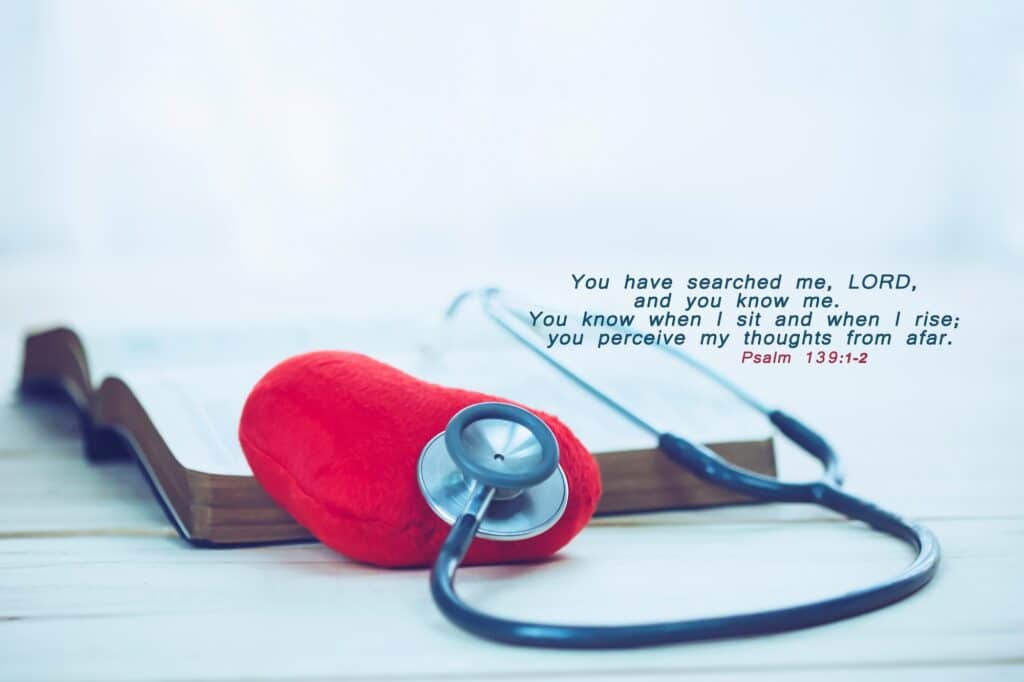
If you or someone you know is experiencing suicidal thoughts or a crisis, please call 911 or the Suicide and Crisis Lifeline at 988. And when you’re ready, reach out to us at LINKS.
If you’re struggling with suicidal thoughts, or you’ve lost a loved one to suicide, you may be overwhelmed with pain, confusion, and spiritual questions. Many people wonder: What does the Bible say about suicide? Is it the unforgivable sin? Will God still love me if I feel like giving up? How can I keep going when I feel so broken?
These are valid, deeply human questions. And while Scripture does not offer a tidy checklist for every mental health struggle, it gives us something much more powerful: a picture of a God who sees our pain, values every human life, and offers unconditional love through Jesus Christ.
Get Help Today
Help and healing are possible through our Christian rehab programs.
If you are ready to take the next step and learn more about how a Christian rehab center can aid in your recovery, feel free to reach out to us at any time.
Is Suicide a Sin?
The Bible doesn’t use the exact phrase “commit suicide,” but it does give us stories of people in deep despair—people like David, Jonah, Elijah, Job. Some begged God to take their life. The Scriptures record for us their prayers and how God responded.
Suicide involves taking your own life, which goes against God’s design for abundant life. The sixth commandment—“You shall not kill”—is often cited as a reason suicide is considered self murder.
God sees the heart. He sees the fear, the chemical imbalance, the trauma, and the crushing weight that can lead someone to believe there’s no way out. And while the Bible affirms that taking a life—including your own—is not God’s will, it does not teach that suicide is the unforgivable sin.
“For I am convinced that neither death nor life… neither the present nor the future… will be able to separate us from the love of God that is in Christ Jesus our Lord.” – Romans 8:38–39

What Is the Bible’s View of Life?
The Bible teaches that every person is created in the image of God. The Westminster Catechism states, “Man’s chief end is to glorify God (Ps 86, Rom 11:36, 1 Cor 6:20, 31, Rev 4:11) and to enjoy Him forever (Ps 16:5-11, Ps 144:15, Is 12:2, Luke 2:10, Phil 4:4, Rev 21:3-4).”
“Before I formed you in the womb, I knew you.” – Jeremiah 1:5
“I have come that they may have life, and have it abundantly.” – John 10:10
No matter how dark things feel, you are not an accident. You are not a burden. You are not beyond help. The Bible doesn’t shy away from suffering—but it also never lets death have the final word. That belongs to Christ Jesus, who conquered death so that those who believe in Him can have eternal life.
The Lie of Finality
Many people who commit suicide believe that death is the only escape. But that’s a lie rooted in despair—not truth. In your lowest moment, you may feel like there’s no point, no friends who understand, and no way out.
But God’s grace meets you there. He has not abandoned you. In fact, the Lord promises that He is “close to the brokenhearted” and saves those crushed in spirit (Psalm 34:18). You don’t have to carry this alone.
And if you’re reading this because a loved one has died by suicide, please know: the pain they experienced was real, but their story does not define them—and neither does the manner of their death. Their life mattered. And so does yours.
Where to Turn for Help That Honors Your Faith
If you’re struggling with mental illness, trauma, addiction, or overwhelming emotional pain, it’s not a sin to seek help—it’s an act of faith. You were never meant to face this alone.
That’s why the LINKS program exists.
LINKS is a Christian mental health and addiction recovery program offered by Northbound Treatment in Orange County, California. It’s designed for individuals who need professional care for mental health, addiction, or suicidal ideation—but want to receive that care in a space that honors their relationship with God.
At LINKS, clients find:
Evidence-based therapy for mental illness and substance use
Pastoral counseling and Bible-based guidance
A compassionate team that understands both faith and psychology
A safe place to share pain, ask questions, and rediscover purpose
A focus on healing the mind, body, and soul through the love of Jesus Christ

There Is Still Hope
You may feel too tired to keep going. You may not even believe that God could still love you after all that’s happened. But He does. The Bible shows a God who walks with the broken, sits with the outcast, and heals those who think they’re too far gone.
“If we confess our sins, He is faithful and righteous to forgive us our sins and to cleanse us from all unrighteousness.” – 1 John 1:9
“And these things we are writing, so that our joy may be made complete.” – 1 John 1:4
If you’re in immediate danger, call 911 or a local suicide hotline. And when you’re ready, reach out to the LINKS program.
Call (866) 434-1330 or contact us online. Your life matters to God. And we’re here to walk with you—step by step, with truth, grace, and hope.
Get Help Today
Help and healing are possible through our Christian rehab programs.
If you are ready to take the next step and learn more about how a Christian rehab center can aid in your recovery, feel free to reach out to us at any time.
FAQs About Suicide in the Bible
What does God's Word say about suicide?
God’s Word affirms the value of every human life and offers hope, even in our darkest moments. While suicide is never God’s will, the Bible is filled with compassion for the brokenhearted and encourages us to turn to Him in times of despair.
Are there any examples of suicide in the Bible?
Yes, the Bible includes tragic accounts, such as when King Saul took his life in battle or when Judas Iscariot died after betraying Jesus. In 2 Samuel 17, a man takes his own life in a royal palace. These stories reflect the real struggles people faced but are never presented as solutions.
Will a person who dies by suicide go to hell?
The Bible does not explicitly say that those who die by suicide go to hell. Only God knows each heart. Jesus is full of mercy, and nothing—not even death—can separate us from His love when we trust Him as our Savior.
How does suicide affect a person’s family?
Suicide deeply impacts the family, leaving behind grief, confusion, and questions. That’s why it’s so important to talk about these feelings openly, seek support, and lean into God’s comfort and truth during such painful times.
Is it wrong to feel hopeless or broken as a Christian?
No, it’s not wrong to struggle. Many faithful people in the Bible wrestled with sorrow and despair. Depression and suicidal thoughts are signs that you need help—not signs of weakness or failure.
What if I feel like the world would be better off without me?
That is a lie. While it may feel true in the moment, thankfully, God’s truth says otherwise. You were created with purpose. The world is not better without you—it needs your story, your voice, and your healing journey.
Can Jesus still save me if I’ve thought about ending my life?
Absolutely. Jesus is our Savior not because we’re perfect, but because we’re in need of saving. If you’re struggling, He’s not turning away—He’s reaching out with love, grace, and the power to restore your life. Here is a brief presentation of the gospel message that you might not have heard before.
What does the Bible say happens when someone is dead?
When a person is dead, the Bible says their spirit returns to God who gave it (Ecclesiastes 12:7). But Scripture also speaks of eternal life through Christ—a promise that even in death, God’s Word offers rest and hope, not condemnation, for those who put their hope and trust in Jesus Christ alone for their salvation.












